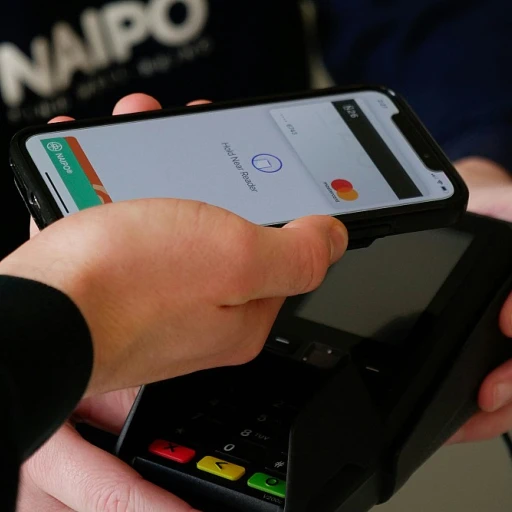
Understanding Seraf's Role in Strategy
Exploring the Strategic Role of Seraf
In the dynamic world of strategic planning, understanding the tools at your disposal is crucial. Seraf, a cutting-edge platform, has emerged as a pivotal resource for companies, especially those in the early stages of development. It offers a comprehensive suite of tools that cater to the diverse needs of manufacturing firms, stage investors, and venture capitalists alike.
Seraf's role in strategy is multifaceted. It acts as an assistant to managers and teams, providing them with the data analytics needed to make informed decisions. By leveraging Seraf, companies can work smarter, optimizing their resources and enhancing their competitive edge. This is particularly beneficial for early stage companies that need to maximize their limited resources.
Investors, including those involved in private equity and angel investing, find Seraf invaluable for portfolio management. The platform's ability to generate detailed sales reports and share insights with the board makes it a vital tool for strategic planning. Moreover, its privacy policy ensures that sensitive information remains secure, fostering trust among stakeholders.
For companies like Freedman Seating, integrating Seraf into their strategic planning process has been transformative. It allows them to align their front office operations with their long-term goals, ensuring that every stage of their development is strategically sound.
To delve deeper into how strategic insights can be harnessed effectively, consider exploring strategic insights from Arbour Lane Capital Management. This resource offers valuable perspectives on the evolving landscape of strategic planning, complementing the capabilities that Seraf brings to the table.
Leveraging Seraf for Competitive Advantage
Enhancing Competitive Edge with Seraf
Seraf stands as a formidable tool for companies looking to sharpen their competitive edge, particularly in the realm of manufacturing and sales. Early stage companies can greatly benefit from Seraf's resources, as it enables them to manage their portfolio with precision and clarity. The use of data analytics through Seraf assists in making informed decisions, aligning neatly with venture capital and angel investing strategies. Those already involved in early stage investments understand the need for robust tools to streamline operations, and Seraf offers just that.
In post-investment stages, Seraf provides clarity for both stage investors and team managers, facilitating easier communication with the board. Sharing vital reports and forecasts is smoother, which allows companies to talk sales with more confidence. Additionally, privacy policies are taken seriously, ensuring that sensitive data remains protected while leveraging data-driven insights.
- Tools like Seraf surpass traditional front office solutions, optimizing portfolio management for investors and offering an interface that supports intuitive decision-making.
- The tool embodies a cutting edge approach by integrating features that assist private equity and venture capital entities in working smarter, not harder.
For companies eager to maintain a competitive stance in their industry, Seraf's capabilities in portfolio oversight and resource allocation are pivotal. As the assistant in landscape management, it encourages a proactive stance rather than a reactive one, which is essential for staying ahead of competitors.
For an insightful examination of how strategic tools like Seraf can enhance company positioning, explore the strategies employed by firms adopting strategic potential optimization.
Implementing Seraf in Your Organization
Integrating Seraf into Your Business Framework
Implementing Seraf in your organization involves a strategic approach that aligns with your company's goals and operational dynamics. As a tool designed for early stage companies and stage investors, Seraf offers a comprehensive suite of resources that can significantly enhance your strategic planning and execution.
To effectively integrate Seraf, consider the following steps:
- Assess Your Needs: Begin by evaluating your current strategic planning processes. Identify areas where Seraf's tools can provide the most value, whether it's in portfolio management, data analytics, or enhancing your front office operations.
- Engage Your Team: Involve key stakeholders such as your board, sales team, and managers in the implementation process. Their insights can help tailor Seraf's functionalities to better fit your organizational needs.
- Leverage Seraf's Features: Utilize Seraf's cutting edge tools to streamline operations. For instance, its capabilities in managing angel investing and venture capital can help you work smarter and make informed decisions.
- Monitor and Report: Use Seraf to generate reports that provide insights into your strategic initiatives. This will help you track progress and make necessary adjustments to your strategies.
By integrating Seraf, companies can enhance their strategic planning processes, making them more efficient and effective. This approach not only supports early stage companies but also provides a competitive edge in the market.
For more insights on navigating the world of venture capital and strategic growth, you can explore this resource.
Case Studies: Success Stories with Seraf
Transformation Stories through Strategic Seraf Implementation
In the journey of strategic planning, companies have increasingly leaned on Seraf's capabilities, unlocking potential in diverse sectors. From angel investing to portfolio management, organizations have witnessed tangible results. One such example includes a manufacturing giant utilizing Seraf to seamlessly align their team, board, and resources, drastically enhancing their sales and market presence.
Another company at the early stage harnessed Seraf's data analytics tools to refine their early stage venture strategies. By meticulously organizing post investment accounts and reports through Seraf, they were able to attract stage investors and secure venture capital to scale their operations.
The versatility of Seraf as a tool extends to supporting an assistant role within the company, bridging the front office dynamics with strategic board decisions. This synergy enabled early stage companies to precisely navigate the challenges and opportunities of the evolving business landscape.
Moreover, Seraf has played a pivotal role in private equity scenarios, helping investors share insights and make informed decisions swiftly. With its cutting-edge tools, companies like Freedman Seating have used Seraf not just for internal planning but as a communication enhancer, ensuring every team member is aligned with the long-term vision.
Finally, the tales of transformation do not ignore the challenges faced during Seraf's implementation. Yet, with a robust support team and comprehensive privacy policy, many companies have turned these challenges into stepping stones for innovation and success.
Challenges and Solutions in Using Seraf
Addressing the Challenges Head-On
Incorporating Seraf into your strategic planning is a sophisticated endeavor that comes with its own set of challenges. Understanding these hurdles is crucial for turning them into stepping stones to success. Here's a closer look at some of the common challenges faced by companies utilizing Seraf, along with practical solutions.Complexity in Integration
When introducing any new tool like Seraf into existing systems, complexity is a natural concern. Early stage companies or even established businesses, such as those in manufacturing, might find the integration process daunting.- Solution: Invest in a skilled support team to streamline the transition. Equipping your front office with the right resources and training can make a world of difference.
Data Privacy Concerns
Data analytics is a core aspect of Seraf, but it also poses privacy concerns which must be addressed adequately.- Solution: Establish a comprehensive privacy policy that aligns with industry standards. This will not only safeguard sensitive data but also build trust with investors and stakeholders.
Balancing Resource Allocation
Allocating resources efficiently is a perennial challenge, especially for early stage companies and companies with a vast portfolio.- Solution: Use Seraf's portfolio management capabilities to optimize resource allocation. Strategic insights from lucid bots and data analytics can help you make informed decisions on resource distribution.
Ensuring Board and Investor Buy-in
Garnering the support of the board and angel investors can be a tough task, especially when they are accustomed to traditional approaches.- Solution: Present compelling reports and talk sales strategies that highlight the competitive advantage of Seraf. By demonstrating tangible returns on investment, you can gain their confidence.
Support for Cutting Edge Innovations
Staying on the cutting edge with tools like Seraf often involves a steep learning curve.- Solution: Emphasize continuous learning and adaptation within the team. Having an assistant tool to guide through the nuances can accelerate the learning process. Moreover, engaging the insights shared by industry leaders like Seraf Investor can provide valuable roadmap tips.
Future Trends: The Evolution of Seraf in Strategy
Emerging Trends in Strategic Planning with Seraf
As the landscape of strategic planning evolves, the role of Seraf is becoming increasingly pivotal. Companies are recognizing the need to integrate cutting-edge tools and resources to stay ahead in the competitive market. Seraf, with its comprehensive suite of features, is at the forefront of this transformation.
Integration with Data Analytics
One of the most significant trends is the integration of Seraf with data analytics. By leveraging data-driven insights, companies can make informed decisions that enhance their strategic planning processes. This integration allows for a more nuanced understanding of market dynamics, enabling early stage companies to optimize their strategies effectively.
Enhanced Portfolio Management
For stage investors and venture capitalists, Seraf offers advanced portfolio management capabilities. This tool provides a holistic view of investments, allowing investors to track performance and make strategic adjustments. The ability to manage portfolios efficiently is crucial for maximizing returns and ensuring sustainable growth.
Collaboration and Team Dynamics
Seraf also facilitates improved collaboration among team members. By providing a centralized platform for communication and resource sharing, it enhances the efficiency of strategic planning processes. This is particularly beneficial for companies in the manufacturing sector, where coordination between different departments is essential.
Privacy and Security Considerations
As companies increasingly rely on digital tools, privacy and security have become paramount. Seraf addresses these concerns with robust privacy policies and security measures, ensuring that sensitive information remains protected. This focus on security builds trust among users and stakeholders, reinforcing Seraf's position as a reliable strategic planning assistant.
Future Prospects
Looking ahead, the evolution of Seraf in strategic planning is set to continue. With ongoing advancements in technology, Seraf is poised to offer even more sophisticated solutions for companies and investors alike. As organizations strive to work smarter, Seraf will undoubtedly play a crucial role in shaping the future of strategic planning.



-large-teaser.webp)









